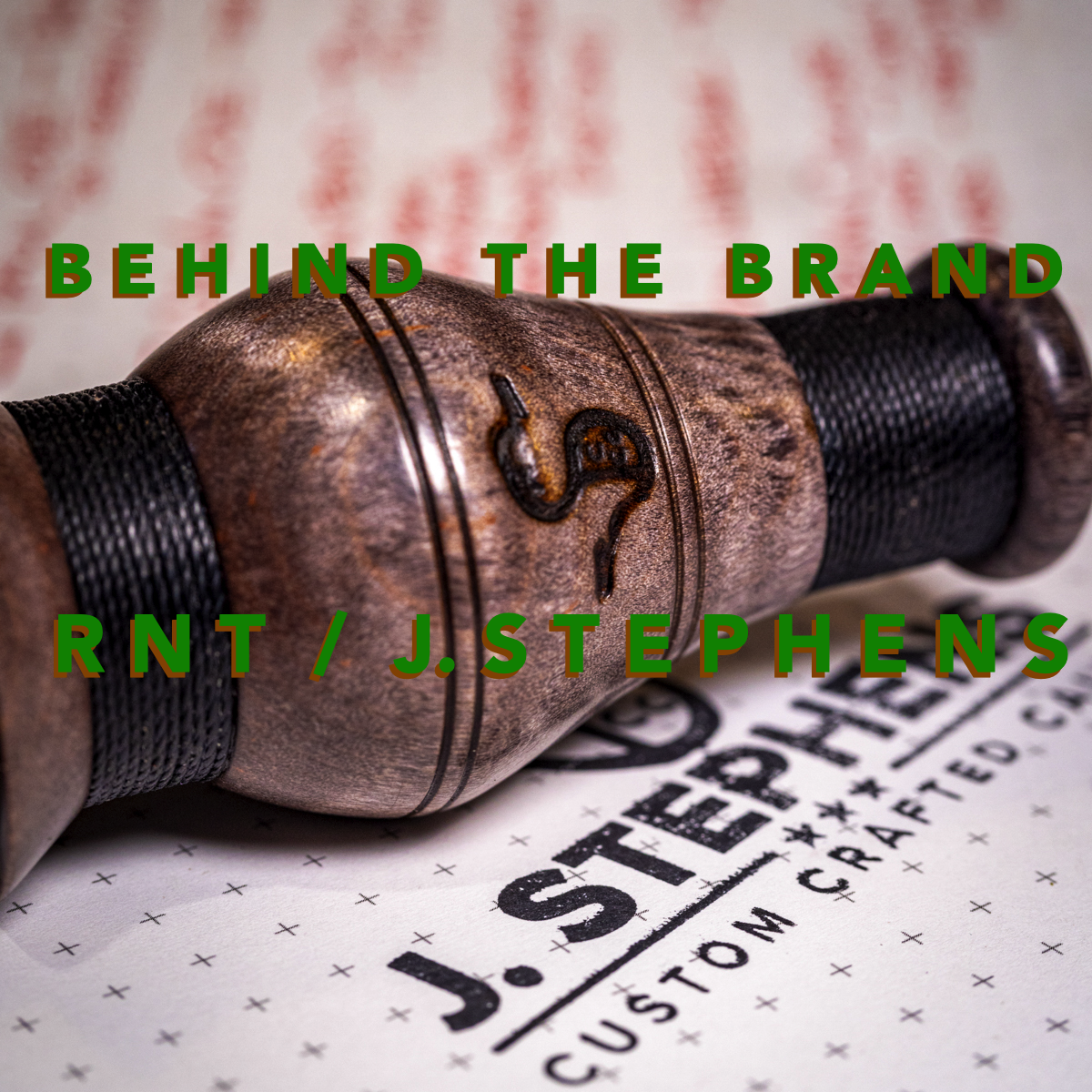
If you’ve spent any time in flooded timber, a pit, or a blind, you know the sound — that sharp, soulful cadence of a duck call that seems to carry the weight of generations. It’s part rhythm, part art, part prayer. Around Stuttgart — the “Duck Capital of the World” — that sound has a name: Rich-N-Tone Calls, or RNT.
For decades, RNT has been more than a call company; it’s been a cultural touchstone. The sound of an RNT call has echoed through Delta sunrises, competition stages, and duck blinds across America. And at the center of it all stands John Stephens — world champion caller, craftsman, and the keeper of a legacy that started with a simple belief: if you love something enough, you can make it last.
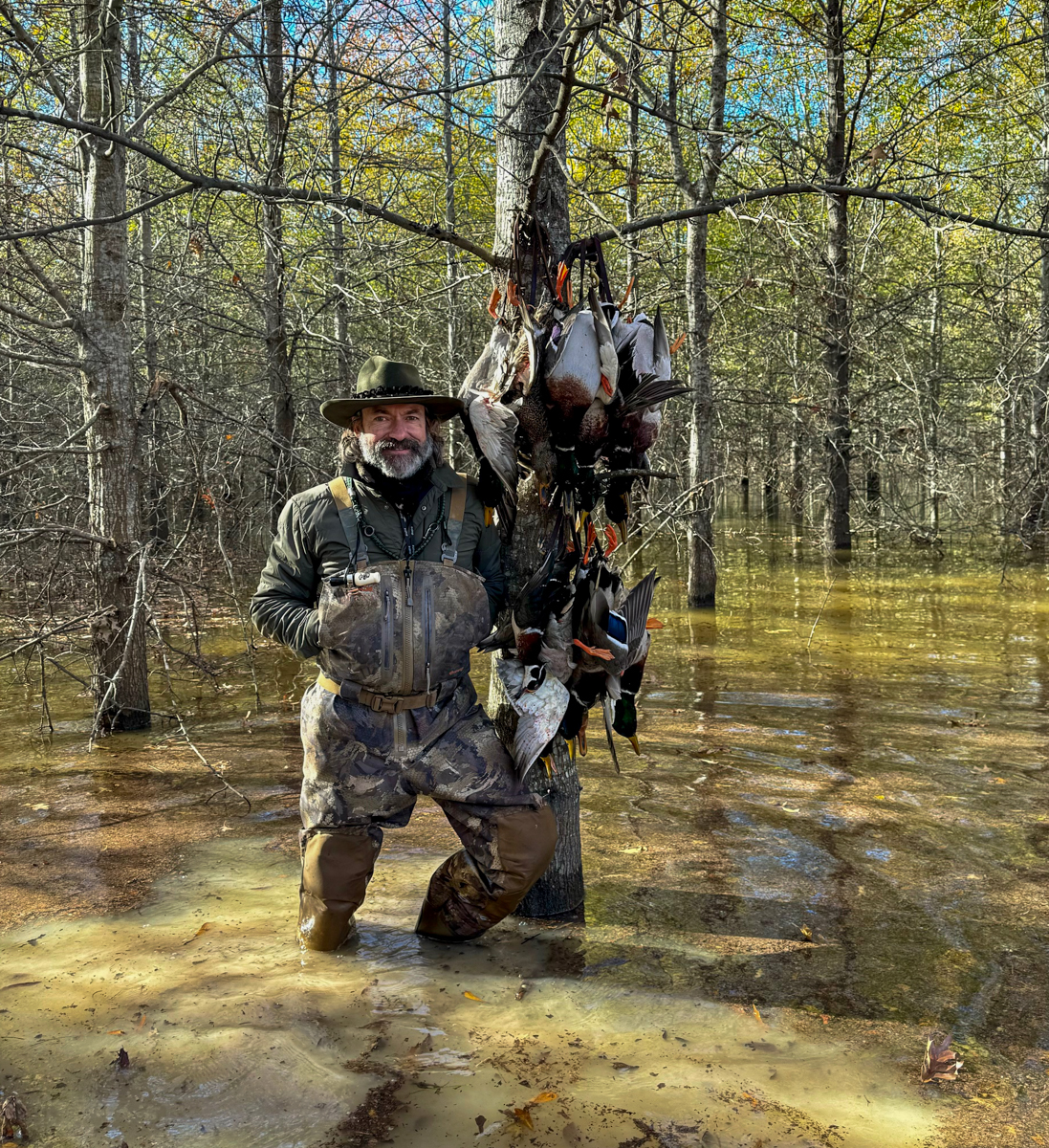
I’ve been chasing ducks for the last six or seven year, and in that time I’ve met some incredible people that really round out the waterfowl culture. John is at the top of the list. He’s such a good guy.
Being that they’ve officially partnered up with RCS I wanted to share John’s story – how it all began, what drives his work, and what keeps him and RNT grounded in a world that’s always changing.
How long have you been into waterfowling and duck calling? I started duck hunting when I was about five years old. Growing up in Stuttgart, my dad was a rice farmer, and he’d take me out whenever he could. One slow afternoon, he handed me one of his duck calls just to keep me occupied. I didn’t know what I was doing — just making noise — but somehow, a spoonbill came sailing into the decoys. At that age, I was convinced I’d called that duck in myself. That moment hooked me for life.
From then on, I was obsessed. I begged my dad to take me every chance he got. In Stuttgart, every kid learns to call — we’ve got a youth clinic that’s been going on since the 1960s. I started attending at age eight and began collecting old calls that family and friends gave me. By eleven, I was competing.
That’s when I started visiting Butch Richenback, a former World Champion and the founder of RNT Calls. He ran those youth clinics and saw potential in me. Before long, I was in his shop every week, watching him turn calls by hand. The first time I saw him working a lathe, I was mesmerized. That was it — I knew I wanted to make duck calls for a living.
At twelve, I won the Junior World Championship, and by thirteen, I was the youngest ever to qualify for the Men’s World. I went on to win the Men’s title in 1995, 1998, and 2005, and the Champion of Champions in 2015. But through all of it, I never lost the love for the mornings, the calls, and the birds themselves.
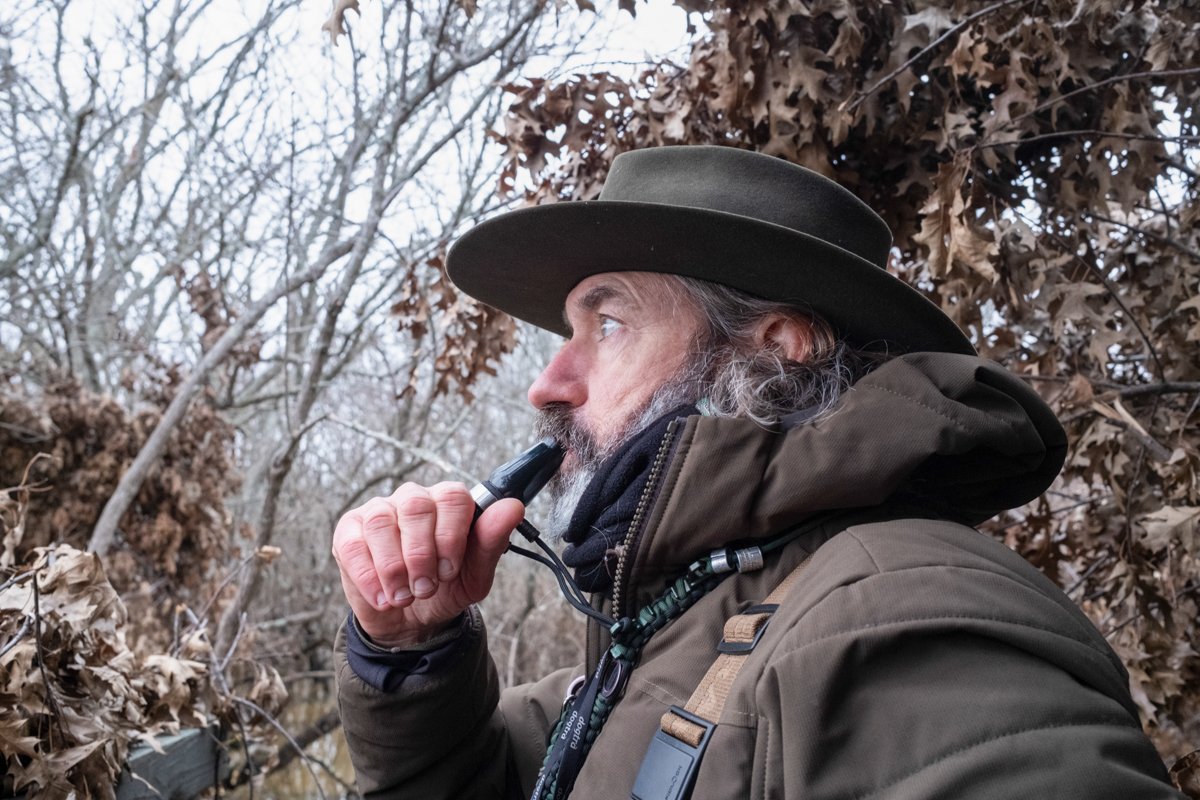
What is the history of RNT Calls? Harry Milton “Butch” Richenback founded Rich-N-Tone Calls in 1976 after learning the craft from Chick Major of Dixie Mallard fame. Butch was a student of precision — a Marine veteran who loved to mentor young callers. His shop became a community hub where passion and craftsmanship came together.
RNT started as a side project in Butch’s garage, but the calls worked — and word spread. They became the standard in competition and in the field. Over the years, RNT calls have won more than 100 World Championships and countless state and regional contests.
When Butch’s health declined in the late ’90s, my wife Angie and I bought the business in 1999. We moved back home to Stuttgart and kept the heart of RNT alive — the handmade quality, the sound, and the heritage.
We expanded over the years — from a small 5,000-square-foot shop to a 15,000-square-foot facility. In 2016, a devastating fire took out nearly three-quarters of our building. It was a gut punch, but it gave us a chance to rebuild better. In 2019, we reopened as not just a call company, but a destination: RNT + The Flying Duck Taproom.
The Taproom is something special — it’s part museum, part retail shop, part craft beer bar, and entirely dedicated to the art of duck calling. We wanted visitors to experience the entire story: from watching calls being turned, to exploring the vintage collections, to having a beer named after a legendary call. It’s one-of-a-kind — the first of its kind — and it celebrates everything we love about this culture.
What goes into making a top-notch duck call? Making a duck call is equal parts science, art, and instinct. Every duck sounds different, and every hunter runs a call differently. That means a one-size-fits-all approach doesn’t work.
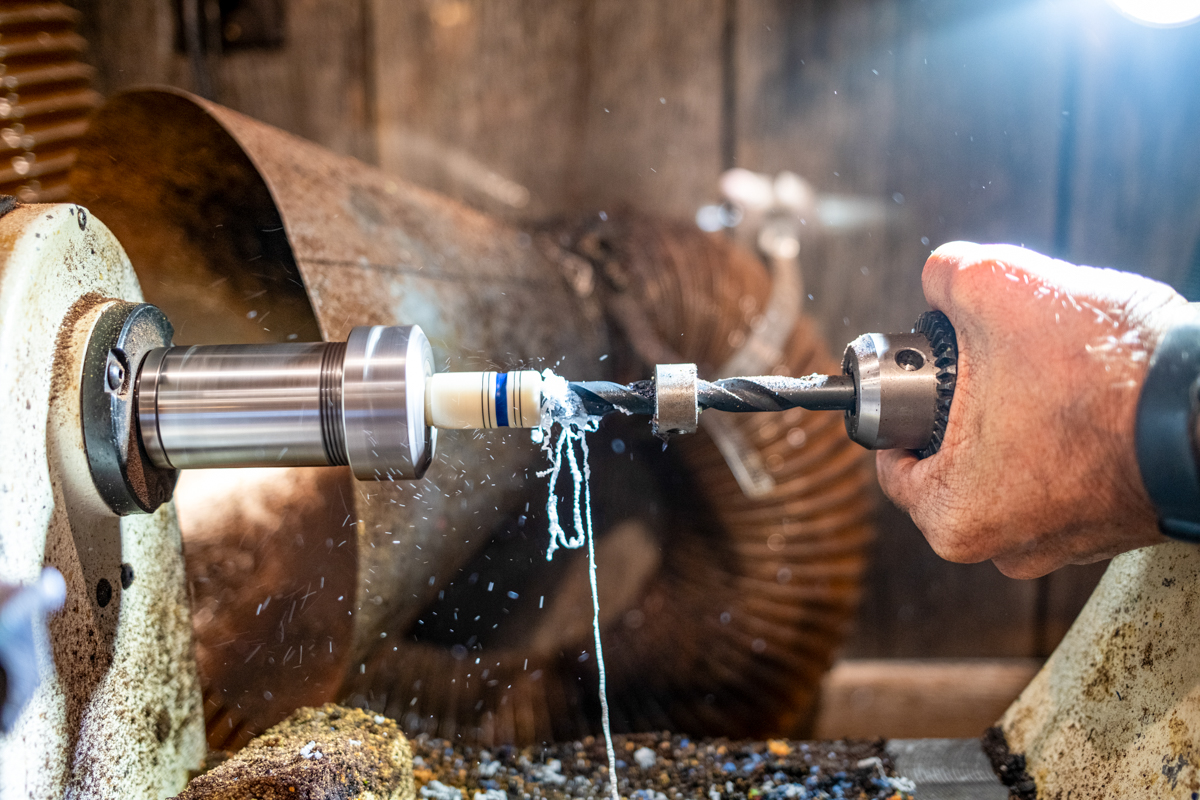
We focus on variety and feel. Each RNT model is designed to fit a certain style — different sound, air pressure, and tone. My goal with any call is to make it feel free — meaning it can come down to a soft quack with just a whisper of air. That’s how you know it’s right.
We balance precision machining with the hands-on tuning that makes each piece personal. Technology helps, but the sound still comes down to touch.
We also give hunters choices — high-volume open-water calls, timber calls for close work, single-reed, double-reed — because the best call is the one that fits the hunter and the habitat.
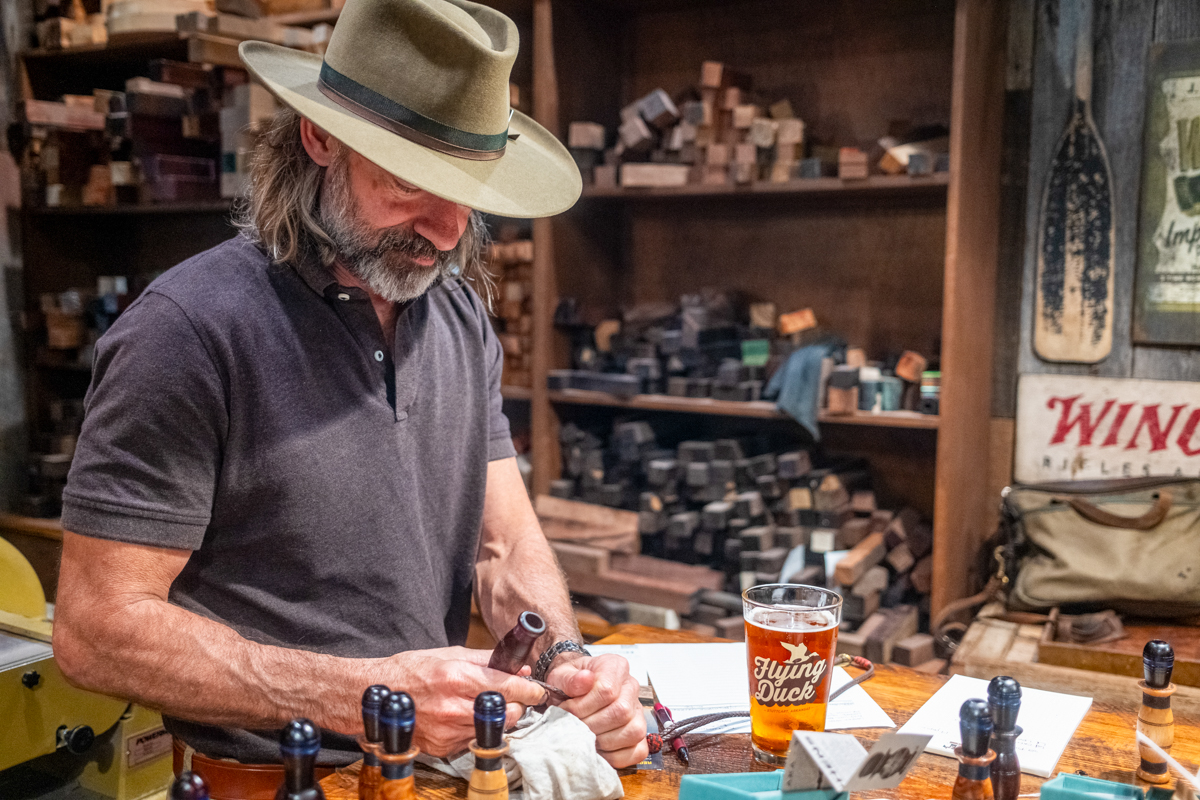
You take this extremely seriously — can you talk about the conservation angle? I’ve been hunting long enough to see the highs and lows of waterfowl populations. When I was a kid in the ’80s, the mallard limit was two birds. Some mornings we’d sit in the blind all day for those two, and we were thrilled to have them.
Populations have always cycled, but there’s a fine line between taking and taking too much. We can’t control the weather, but we can control habitat and stewardship.
At RNT, we’ve always seen conservation as part of the craft. If you love ducks, you have to love the work that keeps them around — restoring wetlands, supporting Delta conservation efforts, and mentoring young hunters. The culture has to be sustainable, not just the gear.
For those looking to get into waterfowl hunting or duck calling, what would you recommend? Duck hunting is a social sport — that’s part of the magic. My advice? Find your tribe. Join a club, book a guided hunt, or just tag along with folks who’ve done it for years. Watch, listen, and learn. Everyone does something a little different, and you can pick up something valuable on every hunt.
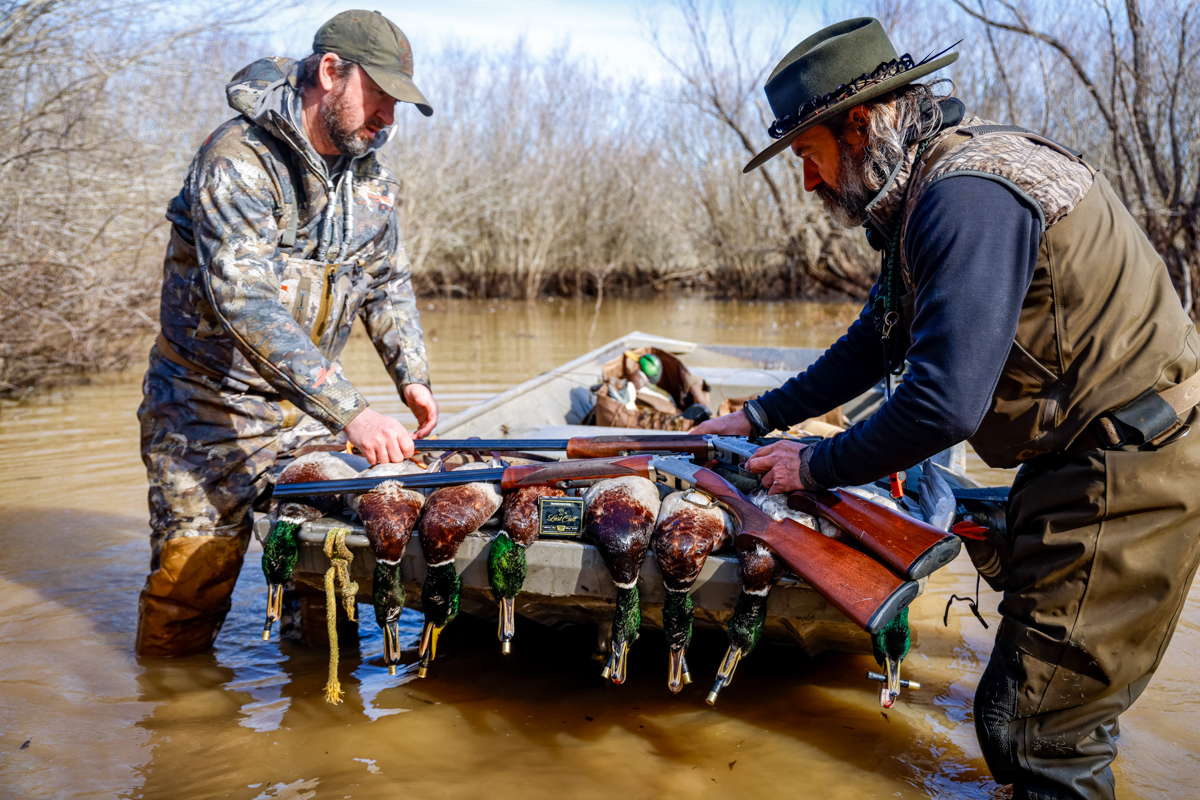
For calling, start simple. Find a call that fits your air and your style — something medium-volume, single-reed, medium pressure. Practice the basics: quack, feed, greeting. Then record yourself and compare to live ducks.
Most importantly, don’t rush it. Calling is as much about rhythm as it is about sound. And practice — always practice.
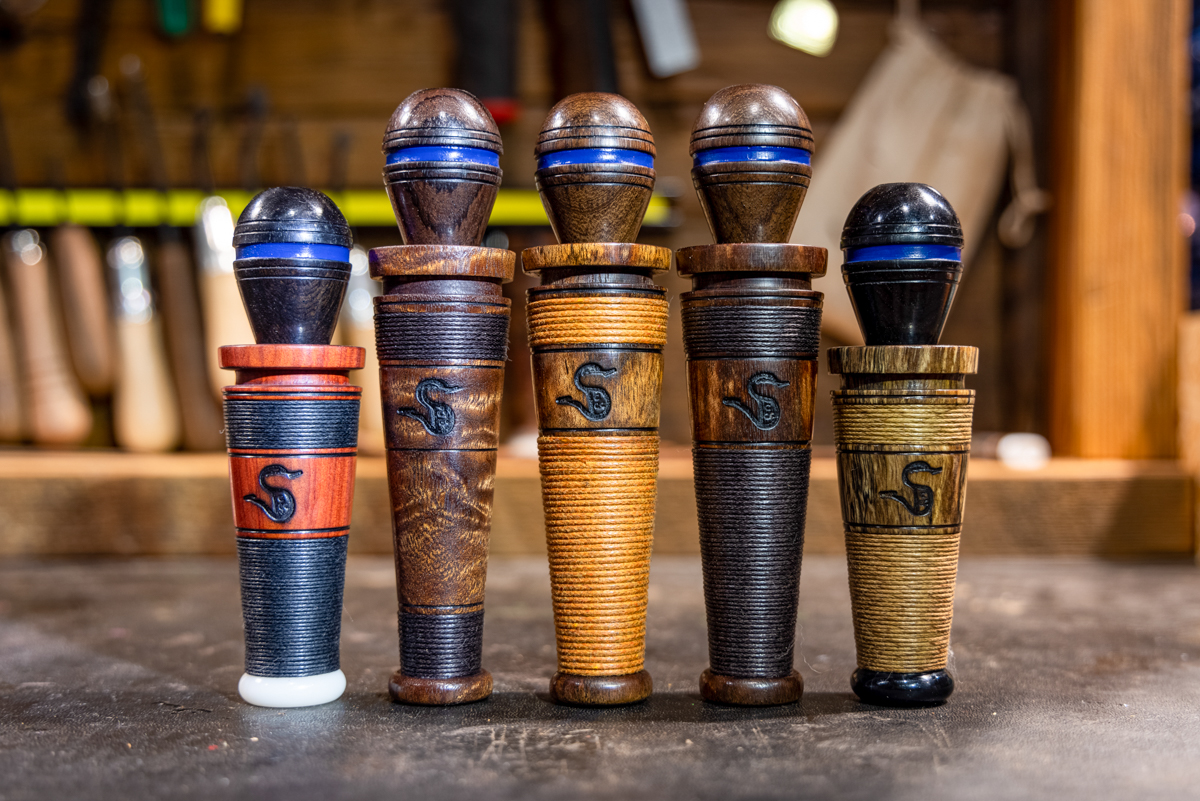
What do you like to do outside of running your companies? When I’m not in the shop or in the blind, I’m usually fishing. It’s second only to waterfowling for me. I take a yearly trip down to Venice, Louisiana, for redfish and tuna, but I spend most of my time on our farm’s reservoirs chasing bass and crappie.
I’m also a vintage call and decoy collector. They’re pure Americana — folk art in its truest form. The community around collecting is incredible: passionate, knowledgeable, and generous.
Outside of that, Angie and I love to travel. We spend a lot of time in Starkville during the offseason — we’re both Bulldog fans, for better or worse — and we enjoy new places, new food, and meeting people who share our passions.
What’s on your Spotify playlist? I’m a music junkie. You’ll always find some Grateful Dead, Widespread Panic, The Black Crowes, Jerry Garcia Band, Drive-By Truckers, Gov’t Mule, Allman Brothers, and Pearl Jam in the mix. I usually sprinkle in a few ’80s metal bands too — Metallica, Van Halen, Soundgarden, maybe a little GnR.
Lately, I’ve been spinning Marcus King, Goose, King Gizzard & the Lizard Wizard, Sturgill Simpson, and HARDY. I’m always exploring something new — but it’s all got that same heartbeat: honest, soulful, and a little wild.
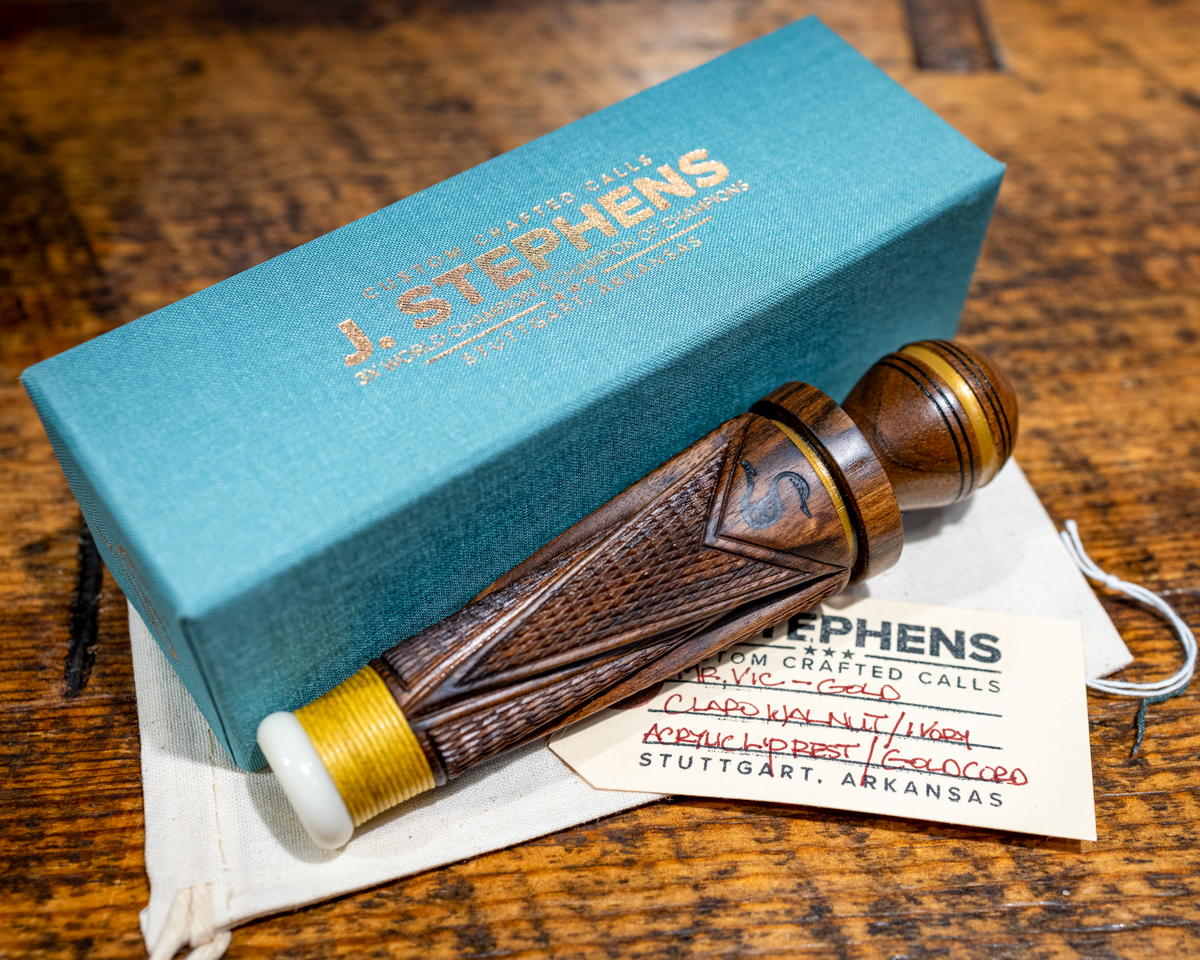
From that first spoonbill in the decoys to running one of the most respected call brands on the planet, John Stephens’ story is a testament to passion and patience. RNT Calls isn’t just a business — it’s a continuation of American sporting heritage. It’s about the sound of wings, the craft of the call, and the people who keep both alive.
And in a world that’s always moving faster, RNT stands for something slower, truer, and worth preserving.

Those look beautiful and I’m glad to hear y’all working towards conservation!